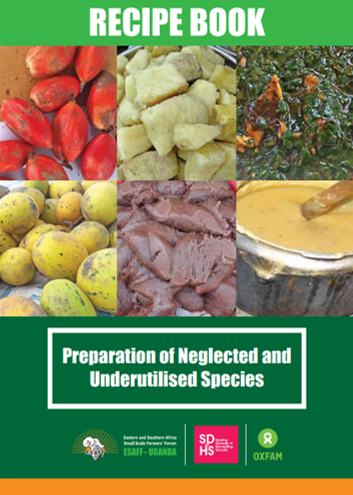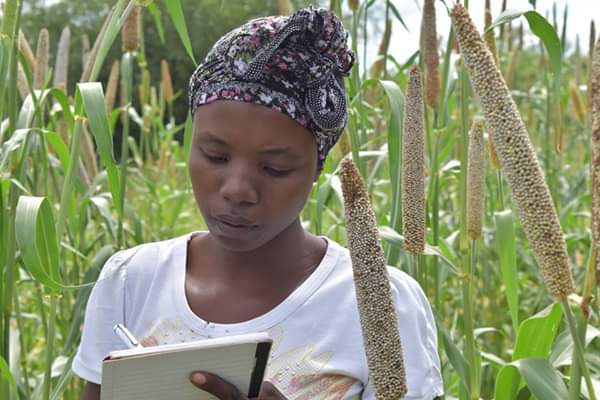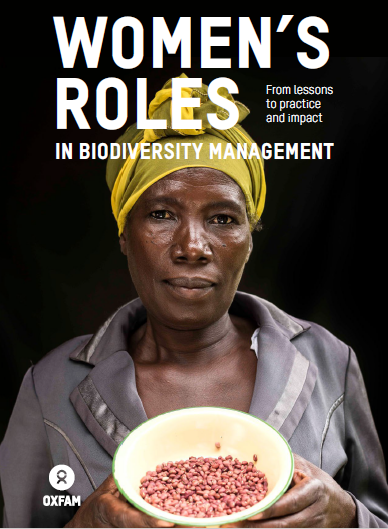The recipe book shows the preparation of Neglected and Underutilised Species
By Andrew Adem, Programs Manager ESAFF Uganda
Despite the efforts of the government and other stakeholders to tackle these issues, hunger and malnutrition remain serious problems in Uganda. With the rising rates of hunger and malnutrition as a result of food insecurity, its effects are felt in a substantial way. Rural areas face greater difficulties, as they are completely dependent on agriculture. Meanwhile, agro-input dealers and seed companies now control most consumed seeds and food, promoting commercial farming. The current food system has placed small-scale farmers and citizens in a position of dependence, deepening hunger and malnutrition concerns. However, there are a number of locally grown food plants that may help communities that are struggling with food and nutrition security. These local food plants are nutrient-dense, they are resilient to climate change, and require few inputs.
At the onset of the Sowing Diversity = Harvesting Security (SD=HS) Program, it was discovered that there are many local food plants in the communities, including domesticated, semi-domesticated, and wild plants, that are essential in alleviating hunger and malnutrition. Unfortunately, relatively few people know about these nearby food plants, and they are rarely given a chance to share their expertise with the rest of the community. Using the Farmer Field School (FFS) approach, small-scale farmers can exchange expertise on the management and use of local food plants.
FFS participants also hold cooking demonstrations to share their skills and learn new methods for preparing and using the local food plants for both food and medicinal use. The cooking demonstrations are knowledge-sharing occasions where the younger generation can learn from the older generation about the various preparation techniques for regional food plants. Through these actions like cooking demonstrations, and cross-generational dialogues, among others, it was discovered that numerous local food plants have the ability to combat hunger and malnutrition. Especially in the face of climate change, which has decreased the production levels of rural farming communities and increased hunger in many parts of the country. These plants are nutrient-dense, can be preserved, and are made available during times of scarcity.
“I was unaware that the majority of the indigenous food plants
in my community are edible”
Adong Sandra, young small-scale farmer
ESAFF Uganda noticed that this vast knowledge was not documented for small-scale farmers and other citizens to utilize. Together with small-scale farmers, ESAFF Uganda developed the Recipe Book of Neglected and Underutilised Species. The recipe book offers numerous ways to prepare locally cultivated plants that can be consumed and utilized as medicine, especially in time of scarcity. These methods not only maintain the nutritional composition of the food plants, but they also enhance their flavors and emphasize their importance for both nutrition and medicine. The recipe book explains how to use many native food plants that are often ignored because of cultural customs, religious beliefs, or simply because younger generations are less informed about their benefits and preparation.
It is essential that we always document information for future generations in order to preserve knowledge.
Find the copy here: https://www.esaffuganda.org/publications/?link=recipe_book_preparation_of_neglected_and_underutilised_species.
Contact Andrew Adem, Programs Manager ESAFF Uganda









